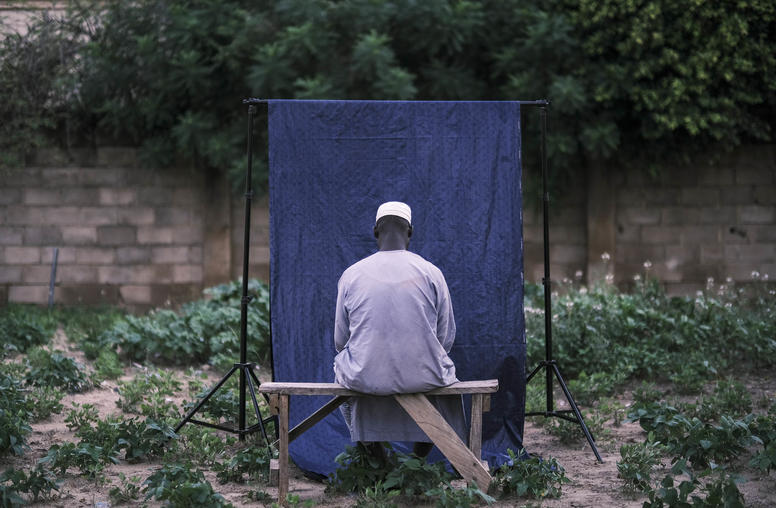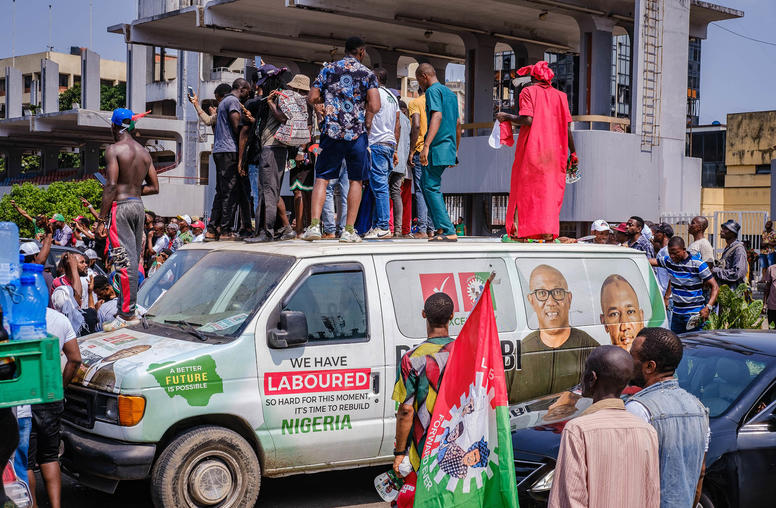Promoting Peace in Petroleum-Rich Regions
Raymond Gilpin, USIP's Center for Sustainable Economies director, discusses how a USIP project to analyze the vulnerability of energy infrastructure in fragile, resource-rich countries could inform policy-making and strengthen efforts to secure peace.
September 5, 2012
The 2012 upsurge in energy infrastructure attacks in petroleum-rich Colombia and Nigeria has renewed concerns about implications for national/regional stability and global supply. Remedial strategies adopted by both countries have failed to stem the violence perpetrated by diverse groups and threaten to undermine peace.
USIP's Center for Sustainable Economies (CSE) is working on a project to analyze the vulnerability of energy infrastructure in fragile, resource-rich countries and help define strategies that are effective and sustainable. CSE researchers have recently concluded research in Colombia, Liberia and Nigeria. CSE director, Raymond Gilpin, has recently returned from a research trip to Nigeria and discusses here how this USIP project could inform policy-making and strengthen efforts to secure peace.
This innovative project focuses on a topical, yet poorly-researched, aspect of security in resource-rich states, namely: the nature, characteristics and motivations of non-state actors. Using a combination of statistical analysis and qualitative input from field surveys, USIP plans to investigate and identify the risk factors that could predict the likelihood of energy infrastructure attacks and particularly the likelihood of energy targeting clusters in risky energy producing and transit regions. Both policymakers and practitioners will be provided with robust predictors with which to develop systems for anticipating and preventing the targeting of energy infrastructure. In addition, the project would provide an updated mapping of nature and scope non-state actors.
Many recent attempts to respond to violence in resource-rich countries have been unbalanced and marginally effective. Since 2009, the Nigerian government has relied heavily on a scheme that hires former militants to protect oil installations. Former militia leaders like Alhaji Dokubo-Asari and Ateke Tom have received multi-million dollar contracts to secure the facilities they once attacked and plundered. With violence resulting in losses conservatively estimated at over $2 billion in 2008, the government considers the lucrative security contracts money well spent. However, the significant increase in violence since 2011 suggests that a more balanced and comprehensive approach is needed.
In Colombia, energy infrastructure attacks doubled between 2008 and 2011. Security professionals refer to a part of the trans-Andean pipeline as “the flute” because it has been breached so many times. Fiscal reforms introduced by Colombian President Santos after he assumed office in August 2010 centralized the collection of royalties and deprived many groups (especially the FARC) of a source of illegal wealth. The Colombian government’s efforts to resolve the matter militarily have not been successful. Non-military options explored by the Colombian government have included recent exploratory peace talks with the FARC in Cuba and diplomatic overtures with neighboring Venezuela via a joint oil pipeline project. The expectation is that joint security would be more robust and that Venezuela could do more to contain the FARC. However, the attacks still show no sign of abating at these efforts are not collectively reinforcing.
To be effective, any strategy must adequately address the modalities and motivations of non-state actors. This still needs to be done in both countries. USIP's ongoing work on the vulnerability of energy infrastructure seeks to fill this gap by developing a new approach that would use statistical and qualitative evidence to analyze nature and frequency of attacks by non-state actors, and provide guidance for policy and practice in this area.



